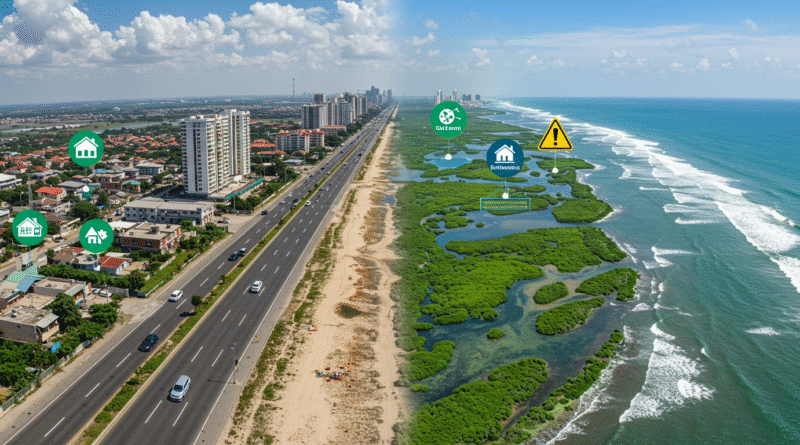Lagos-Calabar Highway: Real Estate and Climate Crossroads
The Lagos-Calabar highway real estate climate debate is rapidly intensifying. As Nigeria breaks ground on the first 30 kilometers of the much-anticipated coastal highway, hopes are high for improved regional connectivity, economic uplift, and a real estate boom.
Yet, alongside the excitement comes deep concern: what is the environmental cost of this multi-billion naira development?
Real Estate Growth Along the Coastal Corridor
Real estate players are already strategizing around the potential windfall of this mega project. Spanning 700 km from Lagos to Calabar, the highway will pass through prime coastal real estate across six states. Experts anticipate that lands once considered remote or inaccessible may experience a surge in development interest.
Similarly, property prices in areas like Lekki, Epe, and Ibeju-Lekki are already experiencing speculative hikes. Developers are rushing to secure plots, hoping to benefit from new infrastructure, tourism, and industrial hubs that will follow the road.
However, urban planners warn that unchecked development could replicate the mistakes seen along the Lekki corridor; overpriced estates, flooding, and loss of ecological buffers.
Lagos-Calabar highway real estate climate: Climate Risks Amplified by Infrastructure
The Lagos-Calabar highway real estate climate dilemma is rooted in the project’s environmental footprint. Environmentalists argue that constructing a highway along an already climate-vulnerable coastline could accelerate ecosystem degradation.
The highway passes through delicate wetlands, mangrove forests, and erosion-prone shorelines. These areas serve as natural flood barriers; critical in the face of rising sea levels and increased storm surges tied to climate change.
Meanwhile, reports indicate that the government has conducted minimal environmental impact assessments (EIAs), sparking protests and legal concerns. Coastal communities fear displacement, worsening erosion, and increased flooding. Without sustainability at the core of planning, these risks could undermine future developments and existing investments.
The Lagos-Calabar highway offers an opportunity to redefine infrastructure through a green real estate lens. If climate resilience is integrated into planning; from eco-sensitive routing to resilient drainage and zoning; the project could balance economic growth with environmental protection.
Conclusively, without urgent policy safeguards and transparent engagement, the project may undermine both its commercial promise and Nigeria’s climate commitments. This moment demands a new standard for how we build; where progress doesn’t come at the cost of the planet.
Still on climate concerns, developers and investors are leaning heavily into Environmental, Social, and Governance (ESG) strategies to future-proof assets.

